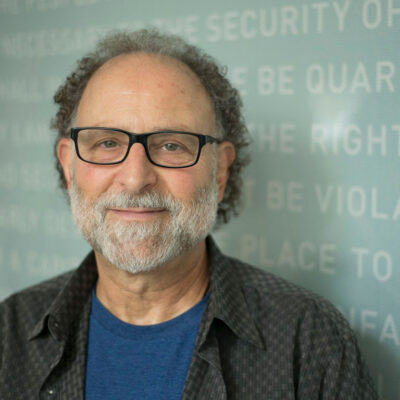Each day in this country, hundreds of immigrants appear in immigration court where a judge must determine whether they will have the right to remain in their adopted home, with their families and loved ones. Even though the government is represented by a trained attorney, and even though immigration law has been referred to as “
more complex than the tax code ,” indigent immigrants are forced to navigate this labyrinthine system on their own and without legal counsel. Our government does not recognize a right to appointed counsel for
anyone facing deportation,
no matter how incapable that individual may be to defend himself , or how complex his case may be.
The ACLU is seeking to change this deeply unfair system in
Franco-Gonzalez v. Holder , a class action lawsuit that seeks to establish the right to appointed counsel for one of the most vulnerable groups in the immigration system – those with serious mental disabilities who are not capable of representing themselves and who are detained by the government while their cases are processed. On Friday, March 22, 2013, the Honorable Judge Dolly Gee of the U.S. District Court for the Central District of California will hear oral argument on an important motion filed by the ACLU to protect the rights of detainees subject to prolonged detention who are not competent to represent themselves. The preliminary injunction motion was brought on behalf of seven immigration detainees whom
the government has
declared incompetent , but who it nonetheless continues to detain without access to appointed counsel who could argue for their release. The motion seeks an order requiring the government to, at a minimum; provide these individuals with the most basic due process – a bond hearing before an immigration judge where they are represented by an attorney who can argue for their release.
At stake is the fate of individuals like Veasana Meas, who entered the United States when he was about five years old and has been a lawful permanent resident for over 20 years. Mr. Meas has a severe mental disability due to his psychiatric condition, and has been found incompetent by an immigration judge. Despite the fact that the government has conceded that he is eligible for relief from removal, the government has detained him for
over a year , without providing him with a bond hearing and without appointing a qualified legal representative who can argue for his release. Under no circumstances can these proceedings – where a man declared incompetent must square off against a trained government prosecutor – be considered “fair.”
This Friday, Judge Gee has the opportunity to begin to correct this injustice by granting Mr. Meas, and the others like him, the right to have a qualified legal representative argue for their release after months, and sometimes years, in detention. Such a ruling would represent a significant step in realizing
Gideon ’s “noble ideal” in the immigration system.

